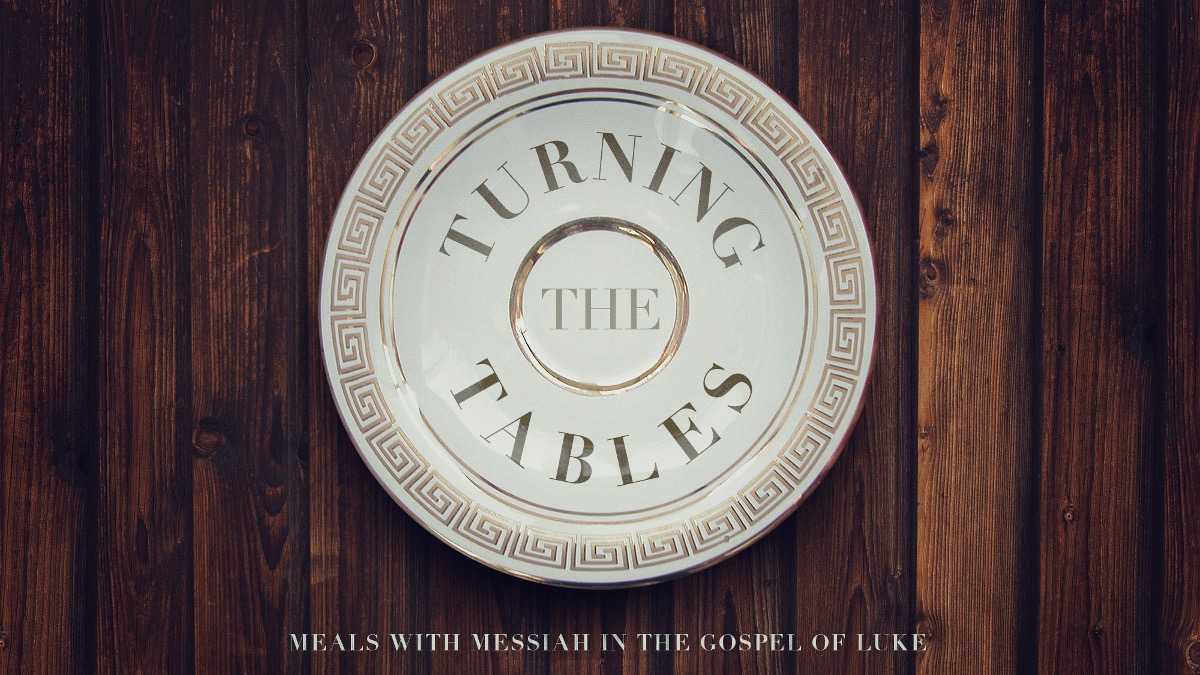
Turning the Tables, Part 1: The Son of Man Came Eating & Drinking (Luke 7:28-35)
Fill in the blank: “The Son of Man came __________.” How would you respond? Teaching and preaching? Healing and forgiving? Loving and restoring? Dying and rising? All good answers, but Luke 7:34 says, “The Son of Man came eating and drinking.” In fact, a major feature of Luke’s Gospel is that Jesus is usually going to a meal, at a meal, or coming from a meal. If you love to eat, Luke is your Gospel.
But wait a minute. Does that sound like the lifestyle of a holy man to you? Does that sound like the behavior of a prophet? More feasting than fasting? More parties than protests? What kind of rabbi is this? The rap on Jesus was that he was “a drunkard and a glutton” (Luke 7:34). Now, Jesus was neither of those things—the Bible says he never sinned—but he did give his enemies enough ammunition to make the charge stick.
And they made the charge stick, not because he was eating and drinking per se, but because of the kinds of people he had at his table—those who were awfully low on the religious food chain. And there’s no indication such folks even had to “repent” before they could come and eat at Jesus’ table! The fact that they came at all—and ate and enjoyed his welcome—was apparently repentance enough for Jesus.
What’s going on here? It’s called grace. And grace is often a threat to the religious mind. Tim Chester has said, “In Luke’s Gospel Jesus got himself killed because of the way he ate.” That’s hardly an overstatement. Before Jesus ever picked up the cross, he picked up the fork. And when he did, he turned the tables—and everything changed!
In this series, we look at the major meals portrayed in Luke’s Gospel. We’re doing so because meals were central to the mission of Jesus; they embodied the very grace of God that he came to give. Significantly, the one person Jesus pictured tormented in Hades was a man who kept others from dining at his table (cf. Luke 16:19-31).
Moreover, Paul’s great exposition of the doctrine of justification by faith in the letter to the Galatians is sparked by a meal—by Peter’s refusal to eat with Gentiles. For Paul, broken table fellowship was a denial of the gospel itself. Why? Because meals are such a central and powerful expression of the reconciling work Jesus came to do.
In this first message of the series, we look at the meaning of meals and the potential of meals. Here’s what we discover:
Meals remind us that the God who feeds us is hospitable, generous, wise, and good.
Meals remind us that we are not self-sufficient creatures but finite beings dependent upon the Creator.
Meals reveal to us the status of our own hearts—who are we willing or unwilling to have at our tables?
Meals enable us to be conduits of God’s grace to others—to listen, affirm, encourage, inspire, value, and support others.
Meals remind us of the ultimate meal to come—the Marriage Supper of the Lamb at the restoration of all things.
Until that eschatological meal, Jesus feeds his people with the bread and cup of Holy Communion—his body and blood. Consequently, at the center of the Christian life is a meal—with Jesus himself as the main course. To quote Tim Chester again:
“Jesus didn’t run projects, establish ministries, create programs, or put on events. He ate meals. If you routinely share meals and you have a passion for Jesus, then you’ll be doing mission. It’s not that meals save people. People are saved through the gospel message. But meals will create natural opportunities to share that message in a context that resonates powerfully with what you’re saying.”
So let’s ask the question: Who is at our table and why? Who might God want us to invite to our table to share and celebrate grace? Are there any biblical restrictions on who should be at our table? (Yes, but only a few. The holiest man from eternity ate with the unholiest people in history.) First John 2:6 says, “Whoever claims to live in him must walk as Jesus did.” Let’s update that statement in light of our theme: “Whoever claims to live in him must eat as Jesus ate.” Are you up for the challenge?
